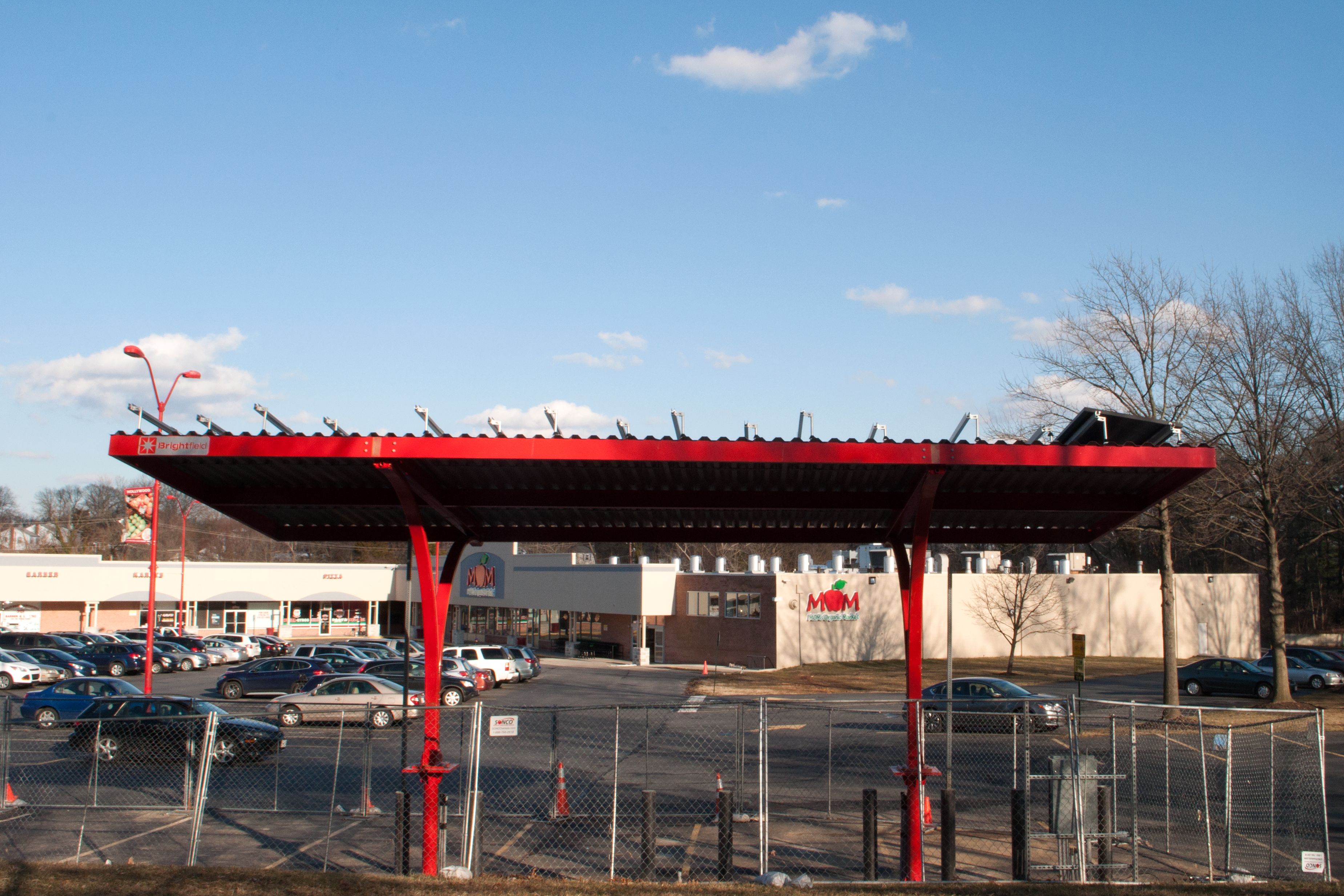University of Maryland student Winter Spray is the proud owner of a 2012 Nissan Leaf. During visits to McKeldin Library or Eppley Recreation Center, she’ll drop her car at a nearby electric pump.
But the growth of electric cars on the campus is starting to make Spray’s life difficult, as finding parking is becoming trickier.
“It’s gotten to the point where there are more people who have electric cars than there are charging stations,” said Spray, a junior communication major.
College Park residents like Spray will soon have a new place to charge their electric vehicles.
The MOM’s Organic Market in Hollywood Shopping Center is expected to complete construction on an electric charging station — with two to four pumps — within the next few months, said Alexandra DySard, an environmental and partnership manager for the chain. More pumps could be added over time.
“[The station is] great for customers,” she said. “And it’s great for our workplace and for our staff.”
[Read more: Lidl aims to make grocery shopping affordable in College Park]
MOM’s prides itself on sustainability. The grocery chain has already eliminated one-use plastic bags, and it has its own 1.5-megawatt solar field in Kingsville in Baltimore County, which accounts for 25 percent of its stores’ electricity in the U.S.
The College Park location is also adding solar roof panels that will account for 30 percent of its electricity, keeping in step with the White Marsh and Waldorf locations that already have the technology, DySard said.
“This just goes along with who we are,” DySard said. “This goes along with our brand, our purpose and our mission.”
District 1 councilman Fazlul Kabir said many residents are looking forward to the new charging stations, as many people in College Park own electric vehicles.
“People who care about the environment and sustainability come [to MOM’s],” Kabir said. “It is a win-win situation, both for the business and the community.”
[Read more: College Park City Council fears Purple Line construction will increase traffic, noise]
College Park currently houses charging stations in the city parking garage and Davis Hall. This university also has 17 electric charging stations located in visitor lots, according to the Department of Transportation Services.
“We’ve talked about other places where we might be able to install them,” Mayor Patrick Wojahn said. “We don’t currently have any plans to put in more.”
As charging stations become more prevalent across College Park, Peter Ryseck, a junior aerospace engineering major who owns an electric bike, wonders if the same options will be available for his vehicle.
“It would be cool if there was a standardized electric bike charging station,” Ryseck said. “The issue is that there’s more standardization with cars.”
The charging stations in Hollywood Shopping Center — like those at all other MOM’s locations — will operate as level II charging stations, according to the company website. These will work at a 240-level voltage, capable of fully charging a vehicle within 8 hours; this is a step up from level I stations, which can take up to 20 hours to charge.
The federal government incentivizes solar panels and electric stations by offering various tax credits to businesses and individuals that sign on for the environmentally-friendly features.
The Federal Solar Tax Credit, implemented in 2005 as part of the Energy Policy Act, allows individuals to deduct 30 percent of the fee for solar panel installation from their federal taxes. By 2020, deductions are expected to drop to 26 percent and by 2022 to 10 percent.
But DySard said the company doesn’t care about these rebates.
“It’s not the thing that we go after,” DySard said. “We’re just going to do these things anyways.”
While owning an electric car is difficult planning wise, Spray is happy with her decision.
“I feel like you vote with your dollar,” Spray said. “One more person on the road having [an electric car] is a step in the right direction.”



